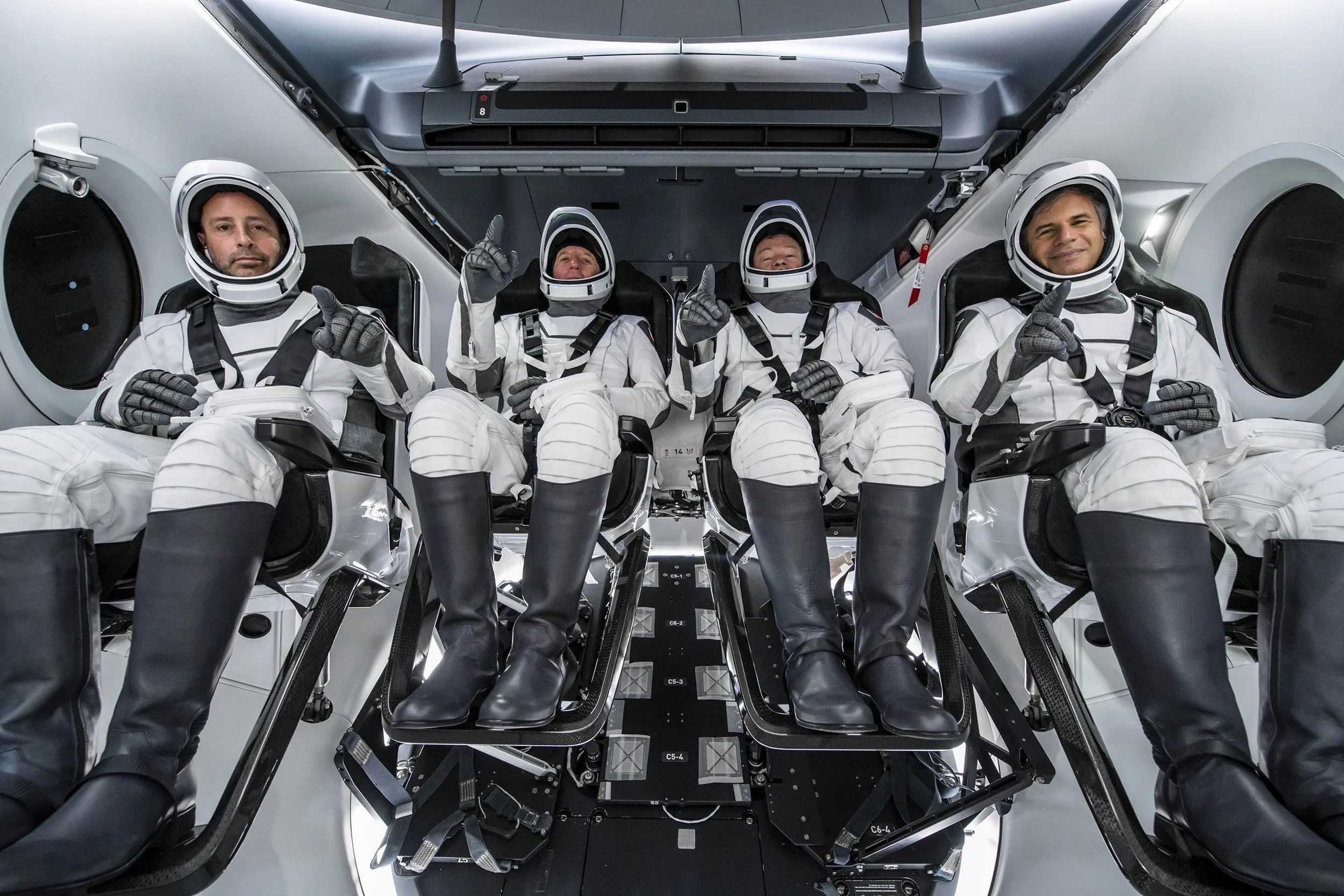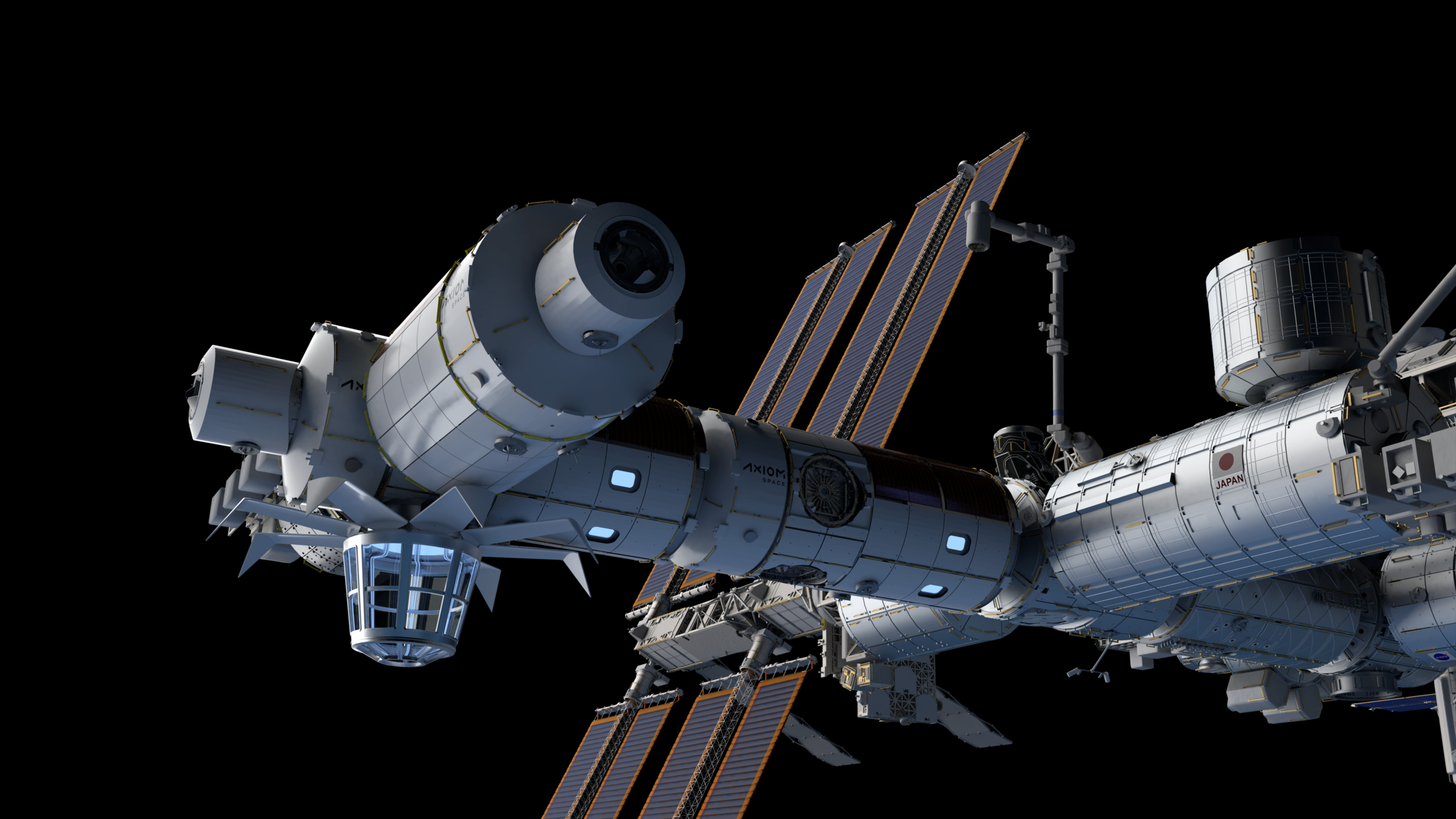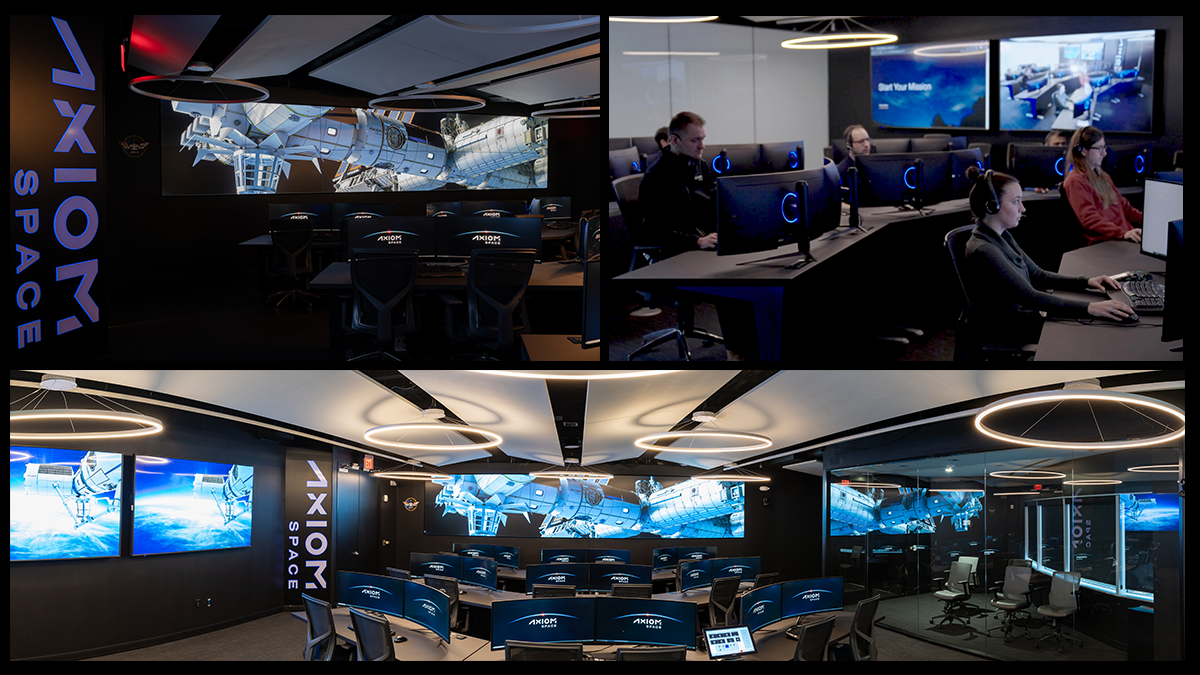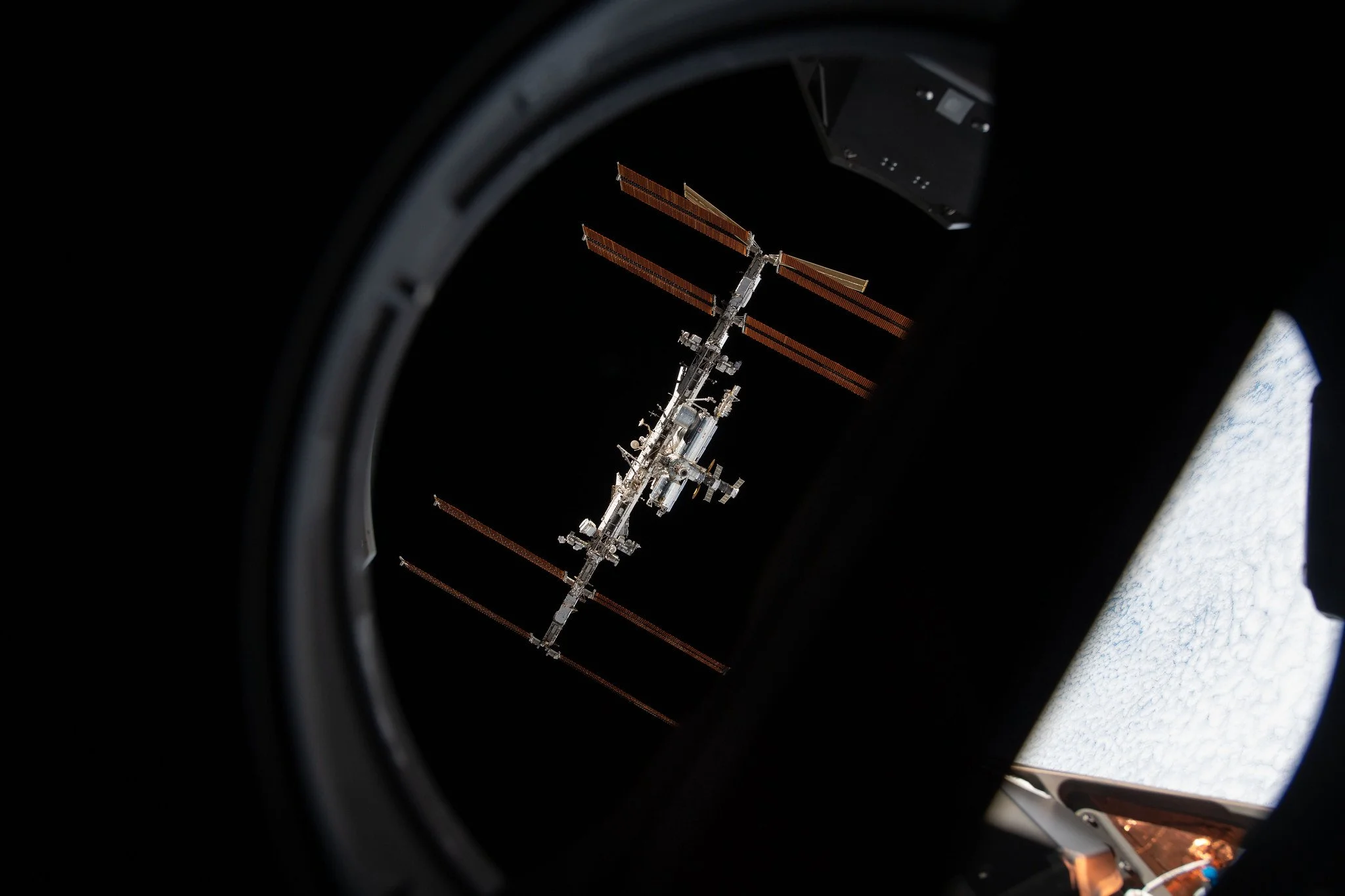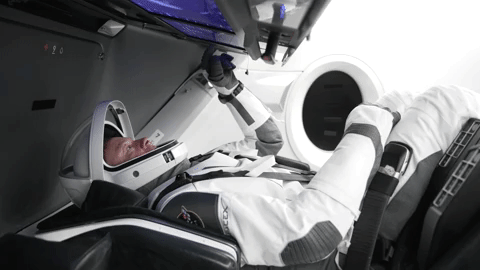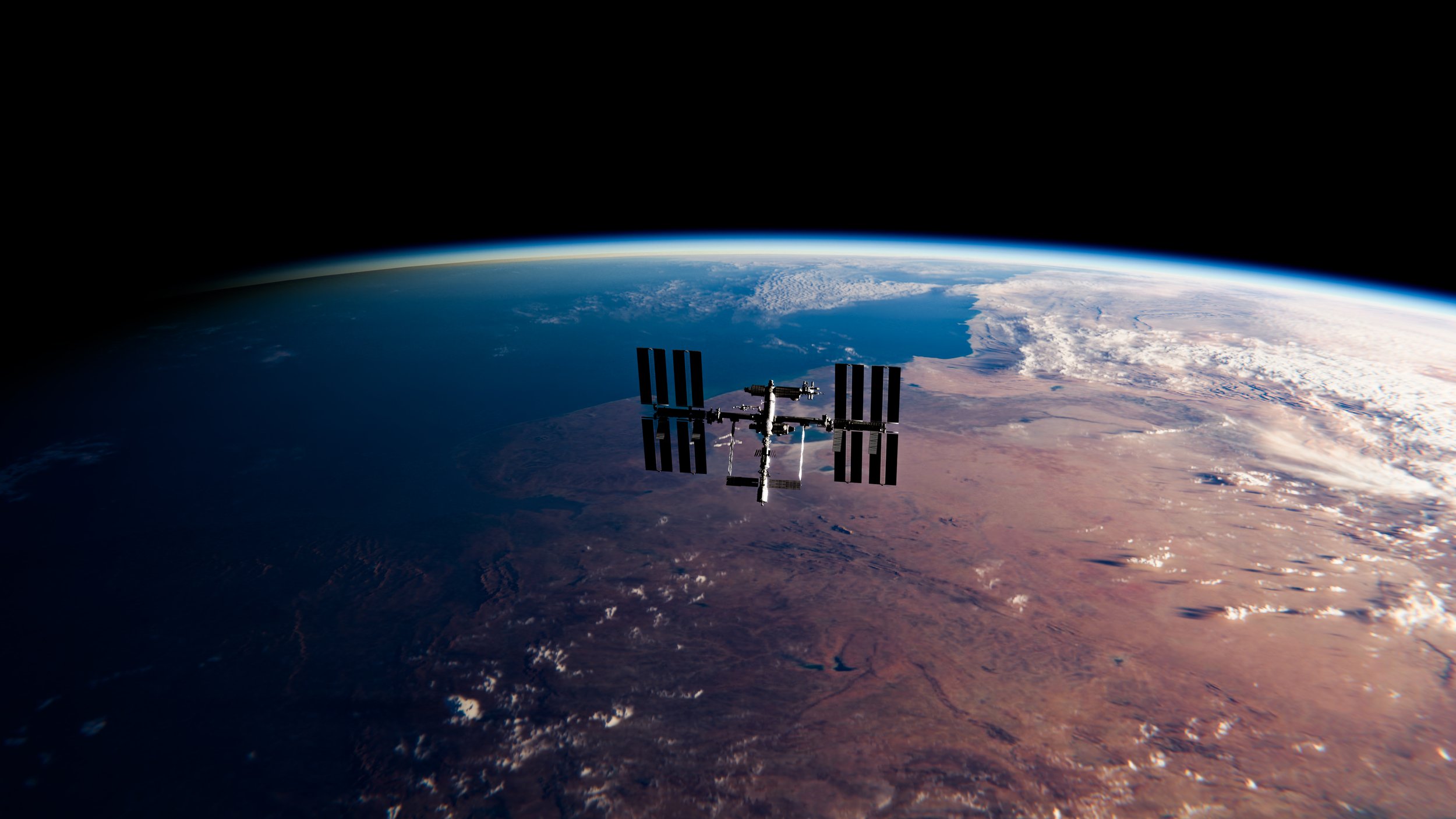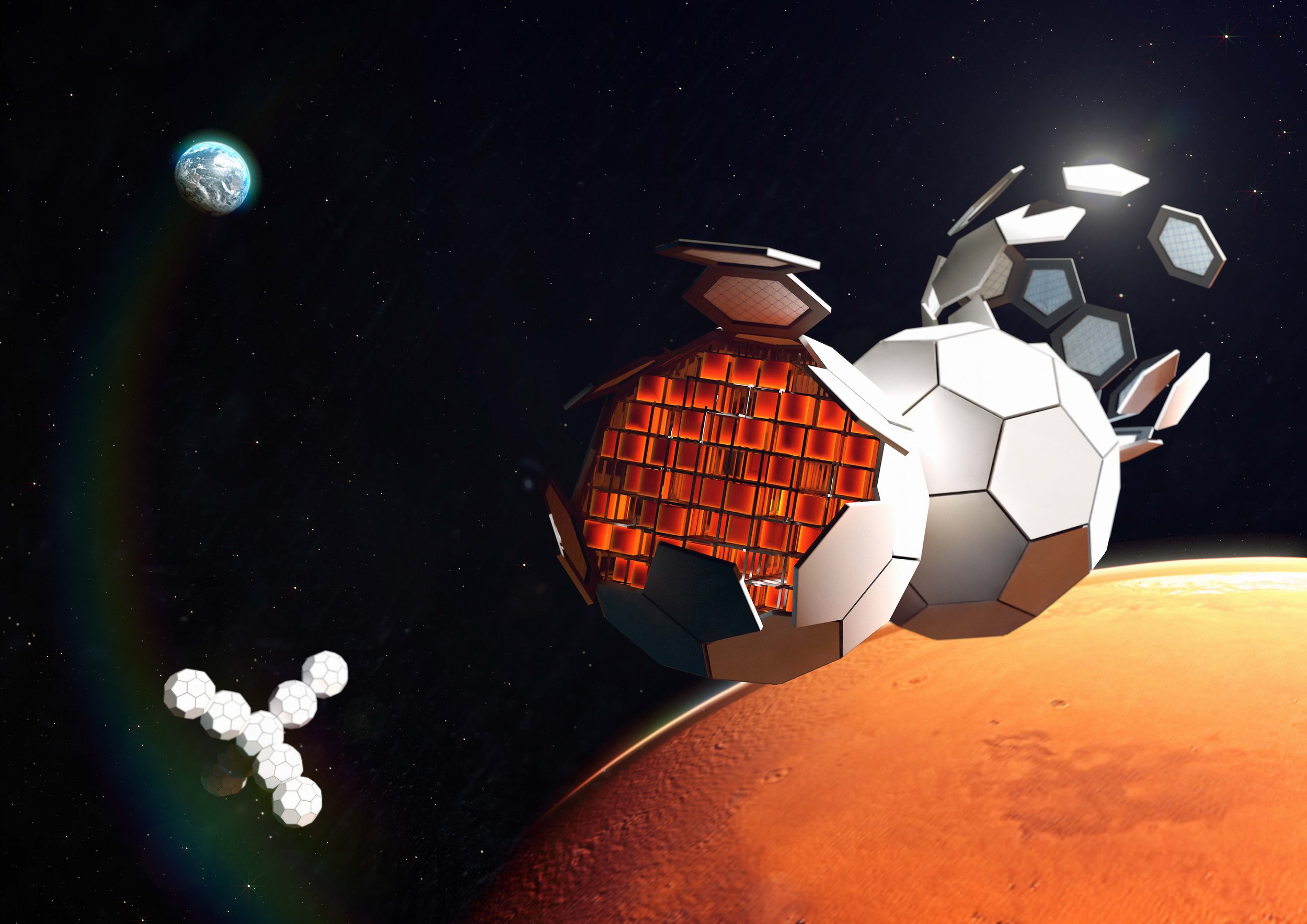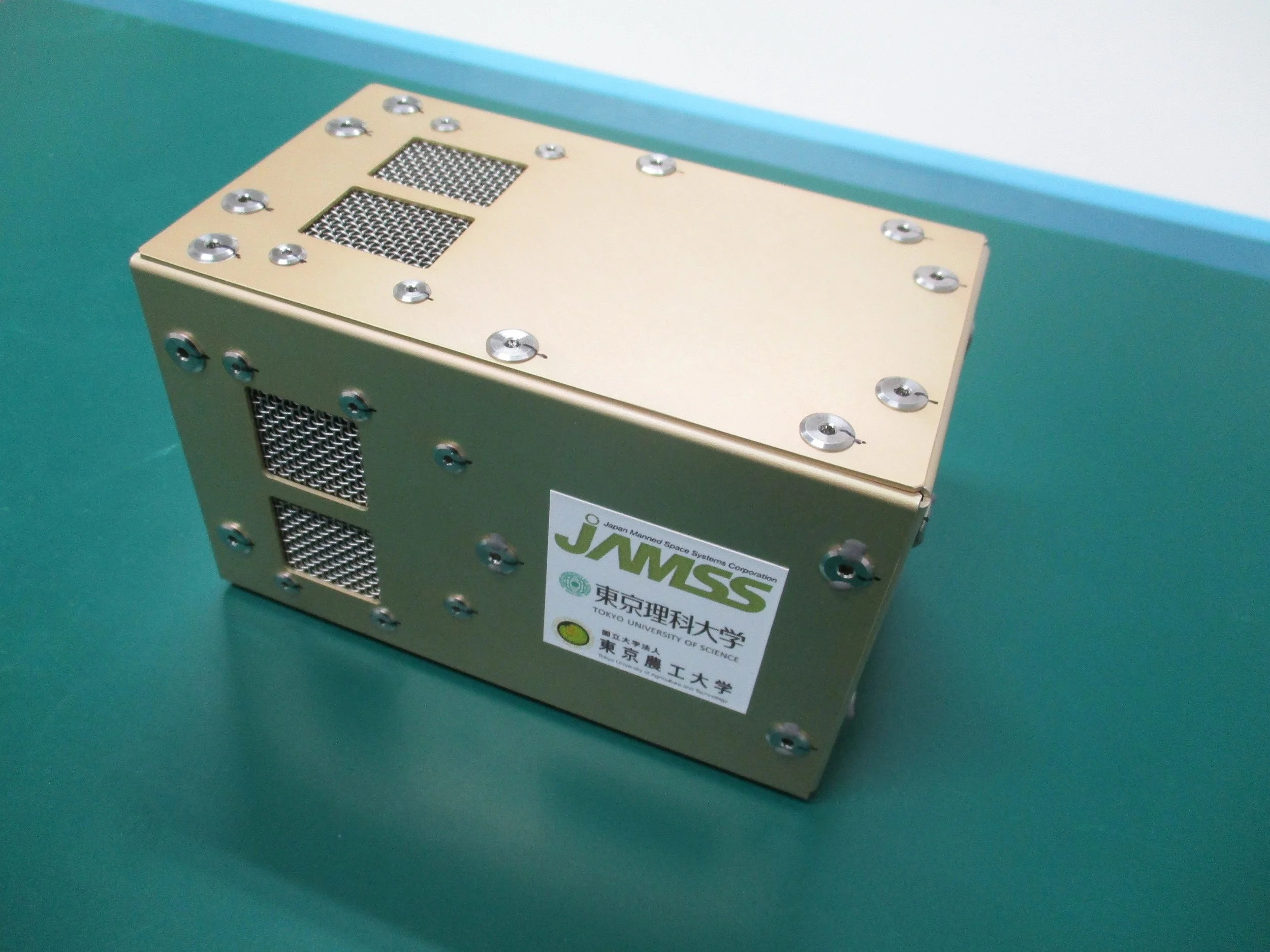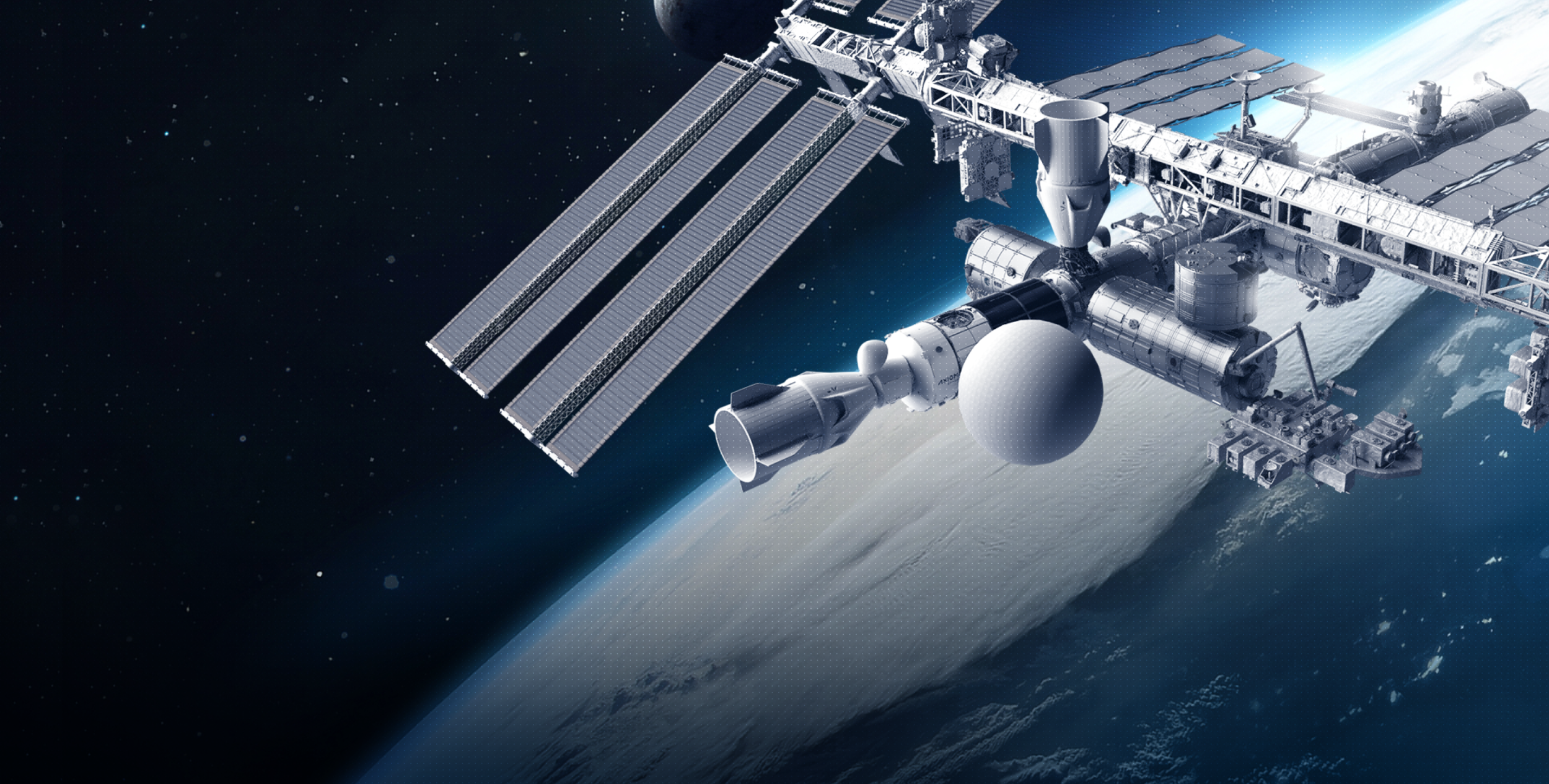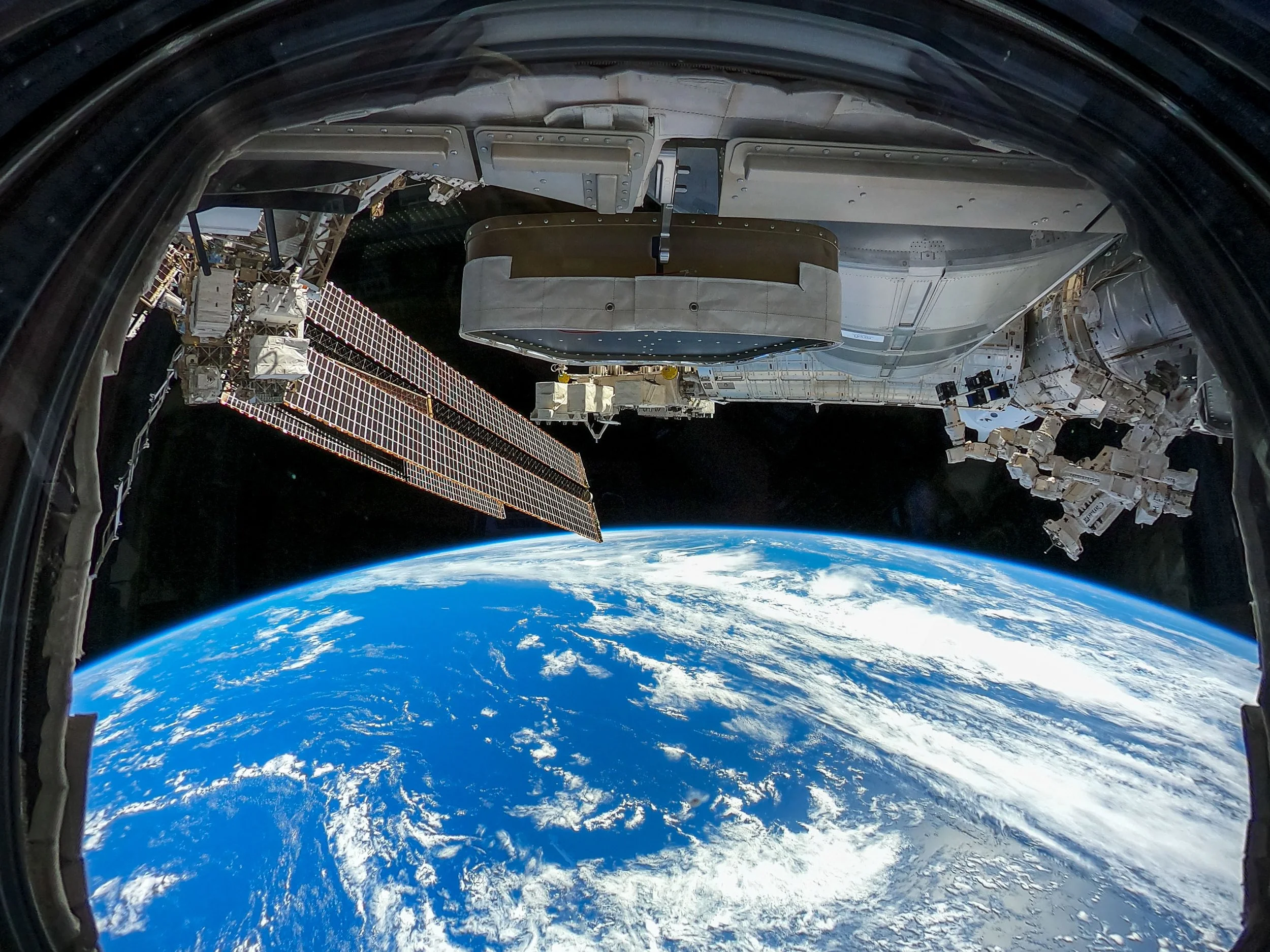Self-assembling technology for future space habitats, cancer research, and devices to purify air on space stations are among investigations headed to the International Space Station on first all-private astronaut mission to the orbiting laboratory
HOUSTON, 17 March 2022 – Axiom Space, a leader in human spaceflight now building the first commercial space station, announced today further details on the groundbreaking research planned for the upcoming Ax-1 mission to the International Space Station (ISS) – including self-assembling technology for satellites and future space habitats, cancer stem cell study, and air purification.
Ax-1, history’s first all-private astronaut mission to the ISS, is a pivotal first step toward Axiom Station, the first private space station. Axiom’s multinational crew of four private astronauts will conduct more than 25 different experiments while aboard the space station, made possible by Axiom’s full-service integration into the NASA process for science and technology activities. Data collected in-flight will impact understanding of human physiology on Earth and in orbit as well as establish the utility of novel technologies that could be used for future human spaceflight pursuits and humankind on Earth.
“As the first step on a path to building a diverse, thriving economy in low-Earth orbit, Axiom has partnered with leaders in academia and industry to bring new users and new investigations in research to the space station,” said Christian Maender, director of In-space Manufacturing and Research for Axiom Space. “The collection of biological and technological tests during the Ax-1 mission represent a breadth of research that will inform everything from human health considerations to novel infrastructure and design for our future homes away from Earth, beginning with Axiom Station.”
The Ax-1 crewmembers are Michael López-Alegría, commander; Larry Connor, pilot; and Eytan Stibbe and Mark Pathy, mission specialists.
Select Ax-1 Mission Investigations


